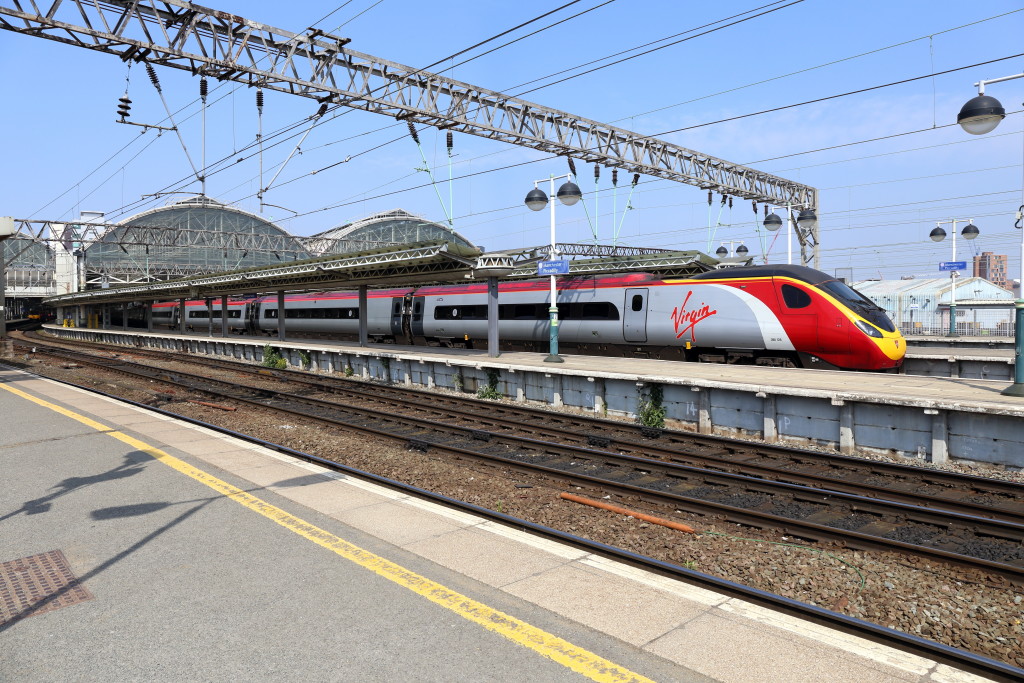Sector - Transport & Infrastructure
Transport for the North

Following in the footsteps of the Northern Powerhouse, Transport for the North (TfN) has been established.
Transport for the North is the organisation formed to transform the transport system across the North of England, providing the infrastructure needed to drive economic growth. This unique partnership is designed to unite elected and business leaders from all areas of Northern England to work with central government and national transport bodies.
Transport for the North will not replace or replicate the work of existing local transport bodies. Its role is to add strategic value, by ensuring that funding and strategy decisions about transport in the North are informed by local knowledge and requirements. This fits with the devolution agenda and TfN will draw powers down from central government rather than up from local government.
In January, Transport for the North revealed its vision for the future, with the release of its Strategic Transport Plan.
In the document, the organisation sets out its plan for the next 30 years. Over this period, TfN wants to transform the road, rail, sea and air connections in the North of England to help drive long-term economic growth. The Strategic Transport Plan explains the need for investment in transport across the North and identifies the priority areas for improved connectivity.
Its vision is: “of a thriving North of England, where modern transport connections drive economic growth and support an excellent quality of life.”
John Cridland, Transport for the North Chairman, said: “The North is a rich, diverse region and home to around 16 million people. We have vibrant communities, buzzing cities, five stunning national parks, an abundance of talent and a wealth of high-performing businesses. Transport for the North’s vision is of a thriving North of England, where modern transport connections drive economic growth and support an excellent quality of life.
“For the first time, civic and business leaders and transport operators are speaking with one voice on transport to make sure the North fulfils its potential. Our plan proposes a revolutionary investment programme that will make it possible to travel to high-quality jobs. This is an ambitious programme that will improve our roads and railways, and will also drive a sea change in skills development in the North, ensuring we meet that historic gap in investment.”
The plan is designed to make it easier for people and goods to travel across the region, improving access to jobs, supporting businesses and improving the movement of freight and goods across the North and to ports and airports. Seven ‘corridors’ of opportunity are identified in the plan that are key to achieving these aims. For example, the ‘Southern Pennines’ corridor identifies proposed road and rail improvements from the Port of Liverpool to the Humber Ports, via Cheshire, Greater Manchester and Sheffield City Region, as well as strengthening cross-border movements into the East Midlands, whilst ‘Connecting the Energy Coasts’ explores ways to improve travel between some of the UK’s vital non-carbon energy and research assets in Cumbria, North Lancashire, North Yorkshire, the North East and Tees Valley.
Alongside the ‘corridors’, Transport for the North has outlined its emerging vision for Northern Powerhouse Rail, a rapid, reliable and resilient rail network between the North’s six biggest cities and other economic centres. This is accompanied by an updated Rail Strategy for investment in the North’s existing lines, stations, services and franchise operations, reflecting the planned integration of Rail North into Transport for the North in April this year.
Response to the plan and TfN’s creation has been mixed, with former Deputy Prime Minister John Prescott walking out of the press conference, calling the whole thing “a fraud,”
However, other reactions haven’t been quite so headline grabbing.
Institution of Civil Engineers (ICE) Director General Nick Baveystock, said: “The Strategic Transport Plan aligns with the ICE’s own recommendations, setting out a coherent case for improving connectivity across all major modes of transport. This will improve service accessibility and reliability for people in the North and help to deliver sustainable economic growth across the region.
“We are pleased that the Plan goes beyond the here and now to consider the impact and benefits of future technologies, such as autonomous and connected vehicles. It is critically important to ensure that the North’s transport networks are future proofed, signalling that the region is ready and waiting to exploit this and other similar opportunities.
“With Transport for the North preparing to become a statutory body in April, the ICE supports its strategy and looks forward to continuing work together.”
David Sidebottom, Director of the independent watchdog Transport Focus, said: “Transport users across the north will be pleased to hear the commitment to keeping them at the heart of plans to develop the transport network. Transport can deliver all kinds of economic and social benefits – but it has to work for the people using it. We look forward to seeing further detail on how Transport for the North will work with transport users to best capture their needs, measure their satisfaction with services provided and then build services that best serve them in the future.”
Stephen Joseph, Chief Executive of Campaign for Better Transport, said: “We welcome the Strategic Transport Plan and its emphasis on rail investment in particular. This is long overdue given the decades of underinvestment in rail in the North of England which has left passengers with slow and limited services and routes, and ageing and unsuitable trains. We also welcome the move away from the absurdly expensive and unnecessary trans-Pennine road tunnel and hope this project can be formally disposed of.
“We now need to see the inter-urban investment in the plan matched by investment in local transport across the region, both in rural as well as urban areas, so that no community is left behind.
“Our hope is that the Plan can now provide the North of England with the opportunity to move away from car dependence and towards a genuinely low carbon transport future in which there are real alternatives to the car for getting around.”
While Paul Knighting, Director at Turner & Townsend and sector lead for Rail, commented: “The North has some of the most crowded rail services in the country, rail journey times are often slower than road! It’s therefore great to see that TfN has set out a bold vision for the transformation of transport in the region.
“We particularly welcome the inclusion of further updates to the Long Term Rail Strategy, which outlines priorities for investment in lines, stations, services and franchise operations.
Delivering these priorities would bring greater connectivity, capacity and cost-effectiveness to the rail network.”
“Having established this much anticipated strategy, we look forward to the conclusion of the public consultation, the statutory status of TfN and the subsequent review and support of the Treasury in prioritising the Northern Powerhouse agenda.
“Addressing the priorities of the Strategic Plan, against a backdrop of limited public funds, low productivity in the construction industry and a growing skills shortage are key considerations.
“We are delighted to see that the Strategic Plan includes options for attracting private investment into infrastructure schemes which will ultimately make or break the ultimate vision of the plan.
“We look forward to working with TfN in the development and delivery of these transformational improvements to the North’s transport connectivity and witnessing the tangible socio-economic benefits that this will bring to the people of the North.”
Neil Carberry, CBI Managing Director for Infrastructure and People, said: “The publication of Transport for the North’s Strategic Transport Plan is a significant milestone in delivering the infrastructure that is needed to boost productivity across the whole of the north. Their plans for improved connections between the towns, cities and economic centres that will drive long-term growth, reflect many of the priorities highlighted by businesses in the North.
“Reaching this stage is a testament to the hard work and collaboration of elected and business leaders, who will be looking to see progress continue at pace.
“It is now for other areas and central government to work together to ensure that no region is left behind by the regional growth agenda.”
If you would like to read more articles like this then please click here.
Related Articles
More Transport & Infrastructure Features
- How technology can improve supply chain resilience in infrastructure project delivery
5 Apr 24
Major infrastructure projects rely on supply chains being resilient in the face of unexpected challenges.
- New report outlines highways and transportation sector employment trends
14 Mar 24
CIHT) has released a groundbreaking benchmark report that tracks employment trends.
- UK construction costs set to rise by up to 3.8% in 2024
29 Feb 24
Construction costs in the UK are predicted to rise by 3 – 3.8% this year, following an increase of 4.1% in 2023.






